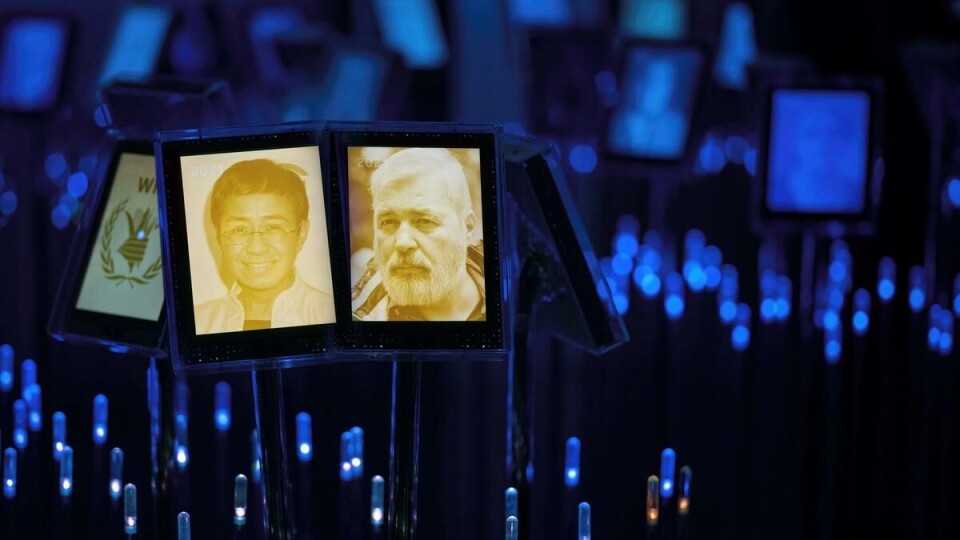2021 Nobel Peace Prize

Journalists Maria Ressa and Dmitry Muratov Awarded
On October 8th, the Norwegian Nobel Committee published their decision to award the 2021 Nobel Peace Prize to Maria Ressa and Dmitry Muratov «for their efforts to safeguard freedom of expression, which is a precondition for democracy and lasting peace».
Maria Ressa is a journalist from the Philippines, co-founder and head of Rappler, a digital media company for investigative journalism.
According to the 2021 World Press Index compiled by Reporters Without Borders, freedom of press is totally blocked or seriously impeded in 73 countries and constrained in 59 others. This number represents 73% of the 180 evaluated countries.
Laws introduced in Thailand, the Philippines, Cambodia, and Indonesia criminalised any criticism of government actions.
The Indian government is using both legislation and widespread propaganda campaign to silence independent journalists, presenting them as pro-terrorist and anti-national. The vicious social media campaign, led by the supporters of India’s ruling party, BJP, is inciting violence against reporters, including calls for murder. The hate campaign is targeting women most extremely.
China continues the censorship of the Internet, surveillance, and propaganda. In Myanmar, in the aftermath of the February military coup, the independent local media outlets have had their licenses revoked. The state-controlled media spread misinformation, and the journalists who refuse to comply with the official rhetoric, are being watched by security forces, forcing many of them into hiding.
According to CNN, as of May 2021, around 80 journalists have been arrested. They are not given civilian trials, can’t contact their families and organisations, and are facing harsh sentences.
In Belarus, journalists are being targeted, beaten, and arrested.
Freedom of press is also being challenged in the West. In August, the Polish Parliament, led by the nationalist populist party Law and Justice, voted in a bill introducing restrictions on ownership of TV and radio broadcast companies. The bill targets one of the few country’s independent TV stations, TVN. It is not the first attempt to block the independent media in Poland. In December 2020, controlled by the ruling party concern Orlen, bought the publishing house Polska Press. Polska Press is the owner of 20 out of 24 regional papers, over 120 local newspapers, and more than 500 online sites.
The problems journalism is facing in 2021 are not restricted to the direct suppression of the freedom of expression. The Norwegian Nobel Committee has stressed the growing concern over the spread of misinformation and fake news all over the world. The issue has been exasperated by the Covid 19 pandemic, which many governments used as a pretext to crack down on independent journalism.
The rise of the presence of false information in social and traditional media is leading to the decline of trust in the fourth power. The 2021 Edelman Trust barometer shows an alarming growth of public scepticism and an outright distrust of media. 59% of respondents in 28 countries believe that journalists «deliberately try to mislead the public by reporting information they know to be false».
The Norwegian Nobel Committee’s decision is a clear call for actions to defend the freedom of expression and press. Only by ensuring that the public has unrestricted access to unbiased information, we can hope to have functioning democracies.
This will require the international community and organisations, such as the UN and EU to be more decisive in their actions to stop the suppression of independent journalism. But the task to challenge the growing mistrust in media cannot be achieved without work from within.
In these challenging times, it will also be up to the journalists themselves to work with dedication and integrity, with the hopes to regain public trust.































